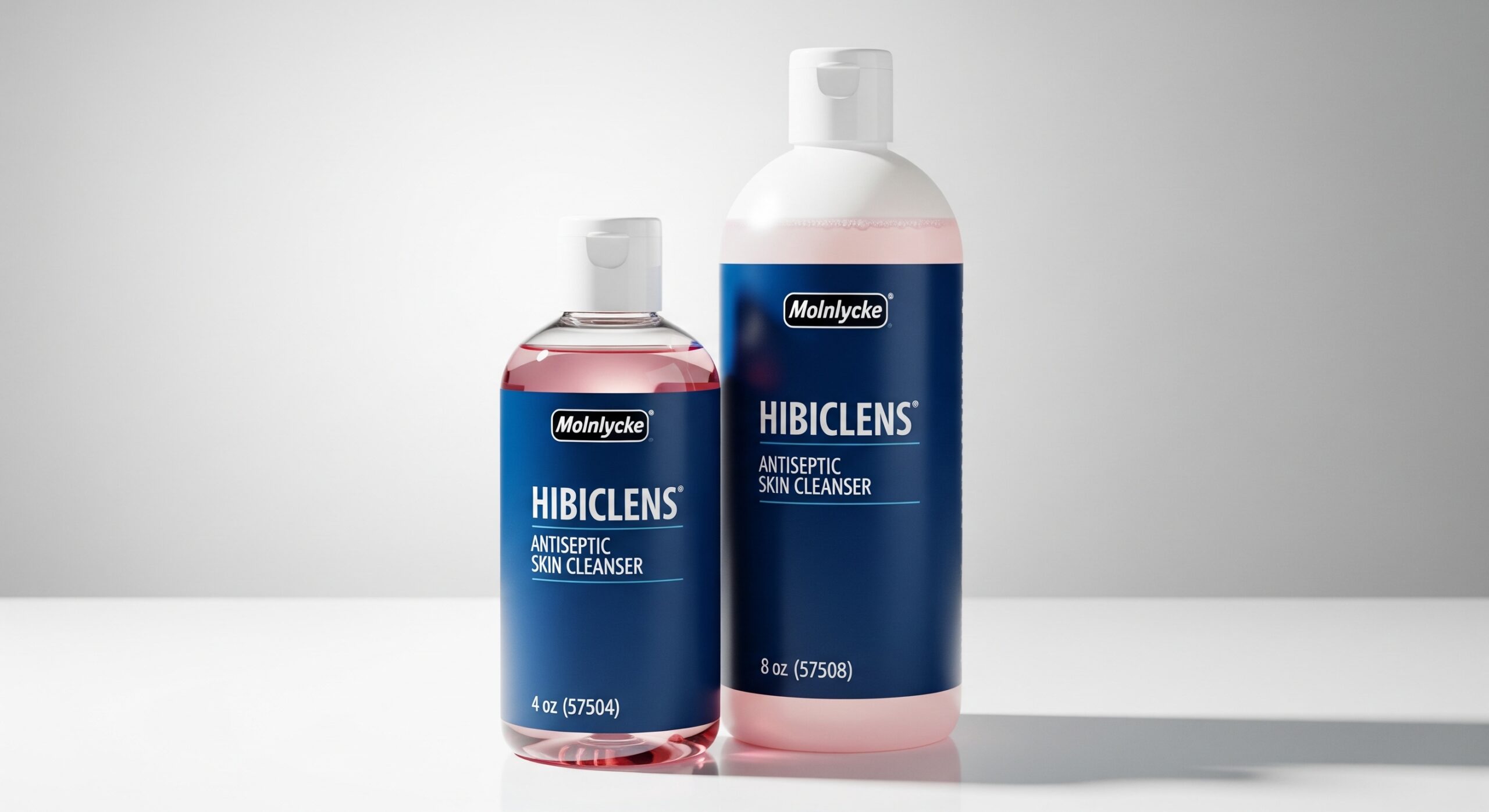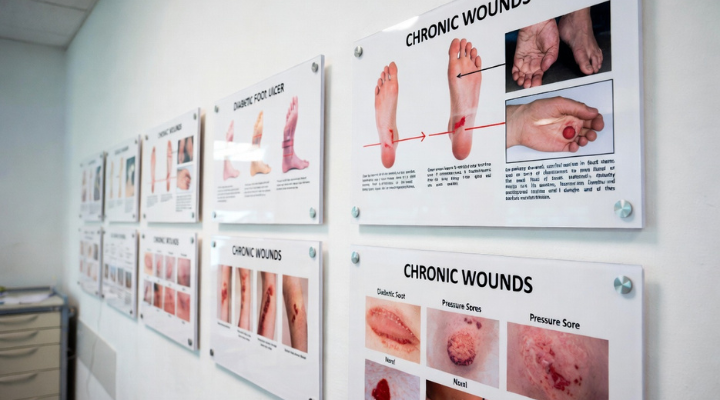
Why Wound Care Specialists Are the Key to Better Recovery?
Recovering from a wound is not always a straightforward process. While minor cuts and scrapes may heal on their own, more complex or chronic wounds require expert care to prevent infections, complications, and delayed healing. This is where wound care specialists step in. These professionals play a critical role in improving recovery outcomes for patients by offering advanced treatments, timely interventions, and personalized plans. With growing innovations like mobile wound clinics and expanded Wound care biologics, more patients can now receive the right care when and where they need it.
In this blog, we’ll explore why wound care specialists are essential, how they improve recovery, and why timely treatment matters.
Role of Wound Care Specialists
A wound care specialist is a healthcare professional trained in diagnosing and treating acute, chronic, and complex wounds. Unlike general medical practitioners, these specialists focus specifically on skin integrity, tissue repair, and advanced therapies that support healing.
They treat a wide range of wounds, including:
-
Chronic wounds such as diabetic ulcers, venous ulcers, and pressure sores.
-
Surgical wounds that fail to heal properly.
-
Traumatic injuries such as deep cuts, burns, or lacerations.
-
Infected wounds requiring targeted interventions.
Their expertise goes beyond basic first aid. They use advanced wound care products, modern dressing techniques, and innovative therapies to stimulate faster healing while minimizing risks of infection or complications.
Why Chronic Wound Treatment Requires Expertise
Chronic wounds affect millions of people worldwide and are often linked to underlying conditions such as diabetes, vascular disease, or immobility. Unlike typical injuries, these wounds don’t progress through the normal healing stages and may persist for weeks or months.
Without specialized care, chronic wounds can lead to:
-
Severe infections such as cellulitis or sepsis.
-
Prolonged hospital stays and higher healthcare costs.
-
Amputations in extreme cases, particularly with diabetic ulcers.
This is why chronic wound treatment must be managed by specialists. They not only treat the visible wound but also address the root cause. For example, a wound care specialist will evaluate blood circulation, blood sugar levels, and overall skin health before tailoring a treatment plan. By taking this holistic approach, they ensure wounds heal more effectively and with fewer recurrences.
Expanding Wound Care Access for Patients
One of the biggest challenges in wound care is accessibility. Many patients, particularly in rural areas, lack immediate access to hospitals or wound care centers. Delayed treatment often worsens their condition and increases the risk of complications.
To address this issue, healthcare providers are improving wound care access through several initiatives:
-
Mobile wound clinics that bring services directly to patients.
-
Telehealth consultations where specialists guide patients remotely.
-
Community wound care programs in underserved regions.
These solutions ensure that patients receive timely evaluations and professional care, which is crucial for successful recovery. With better access, wound complications are reduced, hospital readmissions decrease, and patients enjoy a better quality of life.
The Rise of Mobile Wound Clinics
Mobile wound clinics are transforming the way patients receive care. These clinics operate from specially equipped vehicles or satellite locations, traveling to communities where wound care services are limited.
The benefits of mobile wound clinics include:
-
Convenience: Patients don’t need to travel long distances.
-
Timely care: Early intervention prevents chronic wounds from worsening.
-
Cost-effectiveness: Reduces hospital admissions and long-term expenses.
-
Personalized service: Specialists provide one-on-one evaluations at home or in community settings.
By bringing care directly to the patient, mobile clinics break down barriers of distance, mobility, and access. This model has already shown significant success in rural healthcare and elderly patient care, where regular hospital visits may be challenging.
How Wound Care Specialists Improve Recovery Outcomes
The expertise of wound care specialists translates directly into better recovery results. Here’s how:
-
Personalized Treatment Plans – Specialists tailor care based on wound type, severity, and patient health conditions.
-
Advanced Therapies – They use cutting-edge methods such as negative pressure wound therapy, bioengineered skin substitutes, and hyperbaric oxygen therapy.
-
Infection Control – Specialists apply antimicrobial dressings and closely monitor signs of infection, reducing serious risks.
-
Education and Support – Patients and caregivers are educated on proper wound management at home, improving compliance and outcomes.
-
Faster Healing – With expert interventions, wounds close more quickly, reducing discomfort and downtime.
-
Reduced Complications – Proper care minimizes risks of amputation, severe infections, and repeat hospitalizations.
The result is a smoother, safer, and more successful healing journey.
The Future of Wound Care: Innovation and Accessibility
The field of wound care continues to evolve with advancements that make treatment more effective and widely available. Some of the future trends include:
-
Wearable wound monitoring devices that track healing progress in real-time.
-
Artificial intelligence for predicting complications and recommending treatment adjustments.
-
Expanded mobile wound clinics to reach even more underserved communities.
-
Increased patient education through digital platforms and telehealth.
With these innovations, wound care specialists will have even more powerful tools to improve patient recovery and overall quality of life.
Conclusion
Wound healing is not just about closing a cut or bandaging an injury—it’s about restoring health, preventing complications, and ensuring long-term well-being. Wound care specialists are at the heart of this process, offering the knowledge, skills, and advanced treatments that make recovery faster and safer.
Through expanded wound care access, specialized chronic wound treatment, and innovative services like mobile wound clinics, more patients can now receive the expert care they deserve. If you or a loved one is dealing with a non-healing or complex wound, seeking the expertise of a wound care specialist can make all the difference between prolonged suffering and a smooth recovery.
Retail And Bulk Prices. We Help You Order That Medical Supply You Need!

 Previous Post
Previous Post Next Post
Next Post



